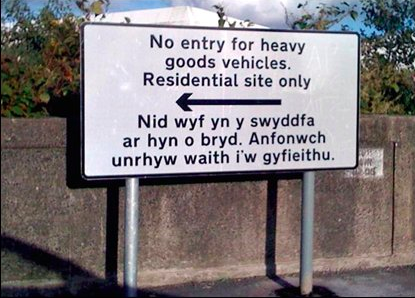The importance of good, high-quality translation is obvious, but sometimes it is even more when things go wrong.
Today we’ve brought some examples that show just how high stakes the job of translation can be. They are just worth reading!
A $71 million word
Quality is of the utmost importance when lives hang in the balance, so skilled and specially trained medical translators and interpreters are essential to avoid fatal errors.
Consider the story of 18-year-old baseball player Willie Ramirez:
When he was admitted to hospital in a coma in 1980, his family, who spoke Spanish, described him as intoxicado.
While the medical staff translated this as ‘intoxicated’, the word referred to being poisoned or having ingested something that made you sick. Ramirez had a brain hemorrhage, but doctors the doctors proceeded as if he were suffering from an intentional drug overdose.
The delay in his treatment made Ramirez a person with quadriplegia, and his family sued and won a $71 million settlement.
Note! A professional interpreter would have known that intoxicado is closer to ‘poisoned’ and doesn't carry the same connotations of drug or alcohol use that ‘intoxicated’ does.
The high cost of cheap translation
It is not unheard of in the world of business to find mistakes in translation, but many underestimate how costly these errors can be.
Take the HSBC Bank example, which spent $10 million to rebrand after a failed international marketing campaign. In 2009, the worldwide bank spent millions of dollars on its 5-year-old ‘Assume Nothing’ campaign. However, in many countries, the message was translated as ‘Do Nothing.’ Not the message you want to be sending out to consumers when you want them to use your services!
In the end, they had to scrap its original campaign and spent millions to change its tagline to ‘The world's private bank,’ which has a friendlier translation.
Note! While rebranding was a good move, it might have done well to occur earlier by working with professionals.
The sign that got lost in translation
When officials in Swansea asked for the Welsh of a road sign, they thought the reply was what they needed and got lost in translation.
All official road signs in Wales are bilingual, so the local authority e-mailed its in-house translation service for the Welsh version of: ‘No entry for heavy goods vehicles. Residential site only’. Unfortunately, the e-mail response said in Welsh: ‘I am not in the office at the moment. Send any work to be translated”. So that was what went up under the English version which barred lorries from a road near a supermarket. All seemed well until Welsh speakers began pointing out the embarrassing error.
Note! Translations need to be revised by a professional in all the cases.
A weighty mistake
In early 2016, Nike released a new shoe design known as Special Edition Air Force 1. The shoe was meant to celebrate the Chinese New Year. Each of the shoes could be customized to show off two Chinese characters.
On one shoe is the character ‘fa’, and the other shoe the character ‘fu.’ When seen separately, the words are associated with festivity, meaning 'be rich/prosperous' and 'have fortune/luck'. Perfect for Chinese New Year, you may think. But when viewed together, a different message is shown: ‘get fat.’ Quite ironic for a sports brand, right?
Note! Translation requires real insight and understanding of the applications and uses of the language.





Kommentare